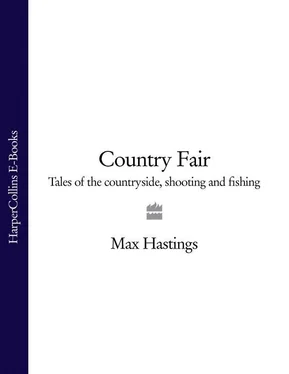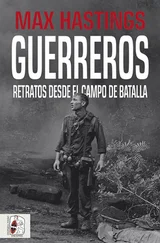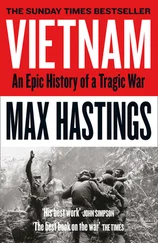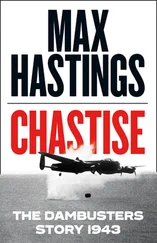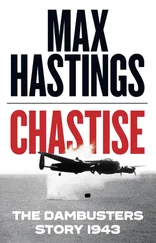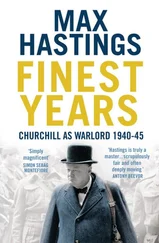The banning of fox-hunting signals a threat to the future of all English field sports, as well as a body-blow to the historic life of the countryside. For centuries, hunts have provided a focus for the social lives of many rural communities. At a stroke, and with malice aforethought, the great tradition reflected in the art of Stubbs, Alken and a thousand lesser brushes, and by the pens of Trollope, Surtees, White-Melville, Siegfried Sassoon, has been swept away. Now that Parliament has established the principle that it is wrong to kill one species of wildlife for pleasure, there is no logical reason why politicians should not move against shooting and fishing also.
I am not optimistic about the prospects for sustained defiance of the hunting ban. Those against whom it is directed are instinctively law-abiding people, even if they are now also angry ones. Some symbolic meets will continue for a time. Drag-hunting may prosper. Essentially, however, fox-hunting and legal hare-coursing – the Labour Party is indifferent to illegal coursing by travellers, which raises no class-war blood-lust on its Commons benches – will atrophy. Many of us whose own lives are not directly affected feel a surge of sorrow for what this measure says about the society to which we belong, in which halal butchery remains acceptable and the use of soft drugs is tolerated, but testing horses, riders and hounds in pursuit of a fox is not. The hunting ban is the act of an urban dictatorship, intolerant of minority cultures which exist outside parameters determined by itself.
There is nothing new about the contempt of intellectuals and radicals for rural pastimes. Joseph Addison remarked scornfully almost three centuries ago: ‘Hunting is not a proper employment for a thinking man.’ The unwelcome twenty-first-century novelty is the determination of an urban-based ruling political class to regard a belief in its own moral superiority as sufficient mandate to persecute a rural minority which it despises. It cares nothing for the wise observation of Plato a couple of millennia ago: ‘There can be no more important kind of information than the exact knowledge of a man’s own country; and for this as well as for more general reasons of pleasure and advantage, hunting with hounds and other kinds of sport should be pursued by the young.’ The hunting ban is the act of a government set upon creating a new Britain in its own image, confident that it faces no political opposition strong enough to frustrate its purposes.
We become a drearier and less diverse society with the loss of the pageantry of English fox-hunting, its thrusters and eccentrics, its beaux and belles, its happy meets and silly squabbles. The challenge now, for those who cherish the traditional countryside, is to do everything in our power to ensure that sport with horse and hounds is not altogether lost, and that the other great rural pastimes continue to prosper. The government assures us that it has no intention of legislating against shooting and fishing. We would be rash to swallow such bromides from an administration which has shown itself chronically deceitful on a host of other issues. I have often written about the importance of supporting the countryside organisations, both those which are responsible for sport – the Countryside Alliance, the British Association for Shooting and Conservation, the Game Conservancy – and those which fight for our rural landscape and character, notably the Campaign to Protect Rural England. Today, when so much is at risk, this seems more important than ever. Sceptics shrug: ‘What’s the point? Nobody has been able to stop the hunting ban, and nobody can stop this government attacking shooting, or building millions more houses on green fields.’ Yet, just as no thoughtful countryman regrets the struggle to save fox-hunting, which delayed legislation for years, so we cannot now succumb to defeatism about shooting, fishing and uncontrolled housing development. If we do not fight, then our sports and our landscape do not deserve to survive.
We must make strategy in the consciousness that we might be ruled by Labour governments for a decade. Tony Blair’s party thinks so, too. Political arrogance fortified Labour’s enthusiasm for banning fox-hunting. It imbues the party’s MPs with a dangerous boldness about the possibilities for going further in their crusade ‘irreversibly to change the nature of British society’. On our side, in seeking to resist new encroachments, we should fight a non-party battle, on an environmental and libertarian platform. Economic arguments about jobs and rural income at stake butter few parsnips with our opponents, for the numbers are too small.
If field sports ally themselves explicitly with the Tories then, bluntly, we anchor ourselves to a party which cannot for the foreseeable future offer useful aid. We face a cultural issue, which extends far beyond field sports. Britain is changing. Those of us who live familiar rural lives amid our rose gardens and the routine of planting broad beans, casting a fly for trout, pursuing grouse, decoying pigeons, should perceive that we inhabit a precious yet increasingly isolated social capsule. It is magnificent, but in the eyes of many of our fellow-countrymen, it represents a charade rather than reality. Out there beyond the gate, there is another world far removed from ours, and politically much more powerful. It is only necessary to ride on a London tube and glance at one’s neighbours in the carriage to perceive its nature. Many inhabitants of New Britain and Young Britain possess no interest in studying Old Britain’s history or in perpetuating its culture. From our viewpoint, it is futile to waste time lamenting this state of affairs. If we want our fragment of society to survive, we must achieve an accommodation with this new world, which is mistrustful of old elites, inherently sceptical of old values.
A while back, a Field reader who proudly described himself as a ‘toff’ accused me of inverted snobbery. Yet it seems only common sense to recognise that the people banning fox-hunting are motivated chiefly by a commitment to class warfare, not animal welfare. One Labour minister has acknowledged explicitly that the measure represented, in the eyes of himself and his comrades on the Commons benches, ‘revenge for the miners’. Tony Blair and his successors may only be dissuaded from further assaults on field sports if they perceive that such action would antagonise those whom they classify as ‘ordinary people’, rather than merely an old ‘privileged class’ whom it delights them to punish.
The most admirable quality in politics, as in life, is generosity of spirit. What was done in the House of Commons in 2004 represented a great meanness. Henceforward, to paraphrase Hugh Gaitskell in a somewhat different context: we must fight, fight and fight again to save the way of life we love. We can succeed only by representing this as a battle for social liberty and for the rural environment, not by positioning ourselves behind a conservative or Conservative barricade.
Our forefathers would have recoiled, of course, from the necessity of justifying to the urban population the chosen activities of the rural community. They regarded the pursuit of wild quarry as the most natural of human activities, and they were right. Yet they might also be cheered that in the twenty-first century we are still doing many things which they did, in a manner not so different from that which they knew. Politics casts its sorry shadow, yet politics seems a wonderfully long way away on a June day at a trout lake, or on a fine December morning, when one hears beaters tapping through the wood and the first cock exploding with a clatter from the trees. The past may have seemed less complicated than the present, but our own sporting experience retains an enchantment that would cheer the shades of our ancestors.
Читать дальше
